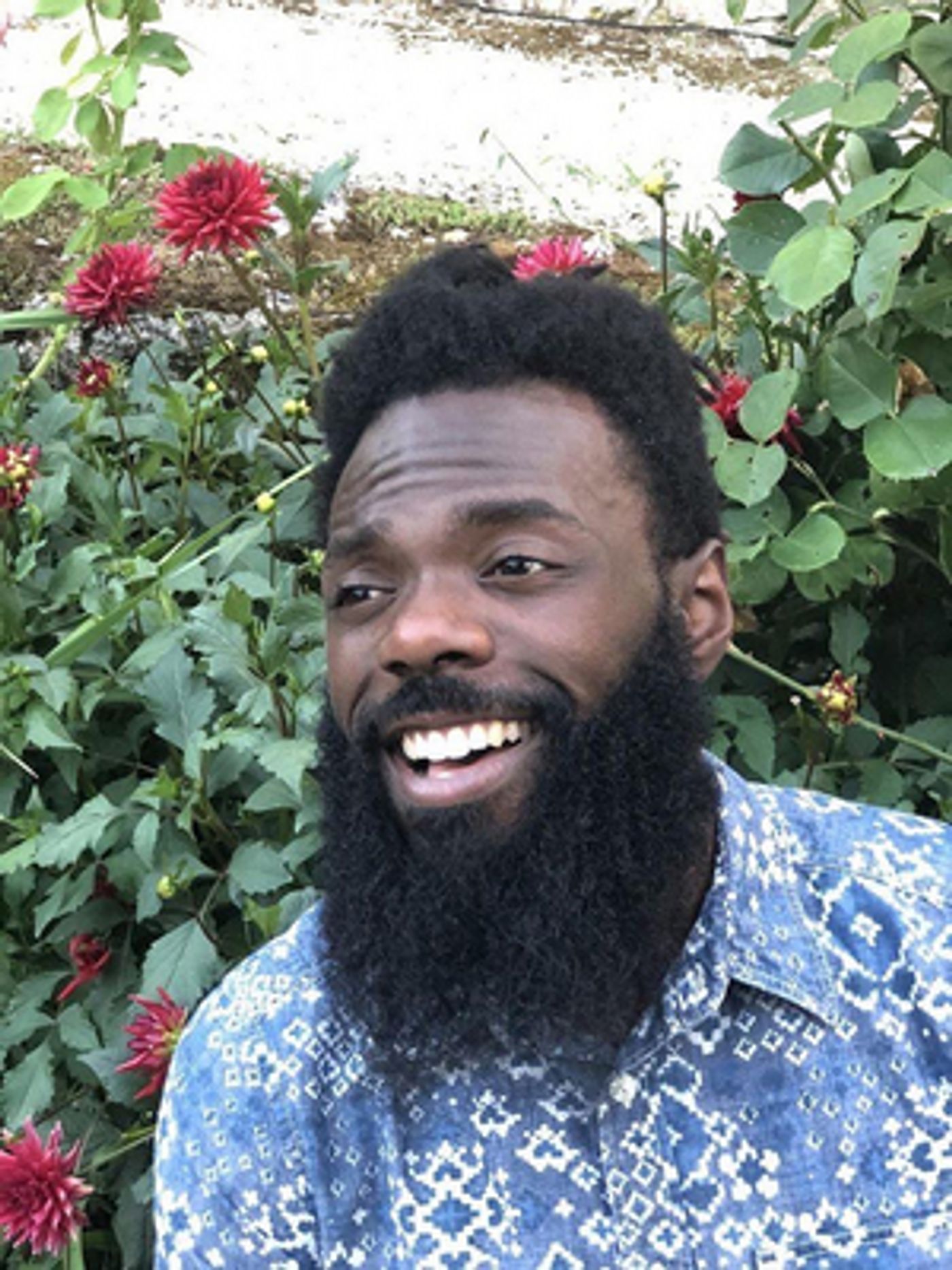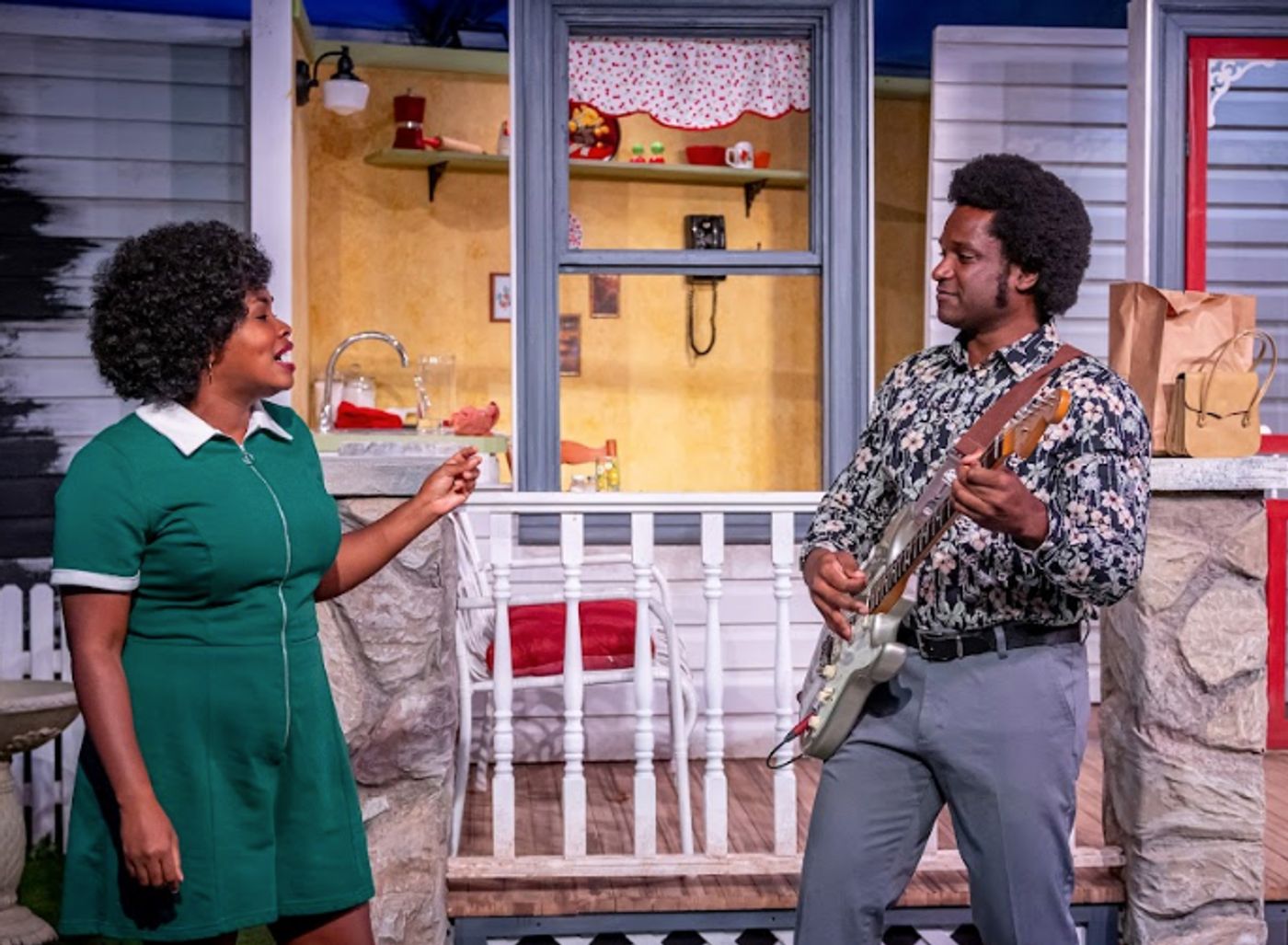Interview: Playwright TyLie Shider and CERTAIN ASPECTS OF CONFLICT IN THE NEGRO FAMILY at Liberty Hall Museum Presented by Premiere Stages
Playwright TyLie Shider and CERTAIN ASPECTS OF CONFLICT IN THE NEGRO FAMILY

Premiere Stages continues their successful season with Certain Aspects of Conflict in the Negro Family written by TyLie Shider and directed by Othell J. Miller. The play will be presented at Liberty Hall Museum on the Kean University Campus in Union through October 23rd.
As tensions reach an all-time high between Newark residents and police, racial and civil unrest begins spilling into Plainfield, New Jersey in the "long, hot summer of 1967". Clif and Peach moved their family to Plainfield for the promise of a better future, but as the riots begin, the family contemplates a return to the South.
Broadwayworld had the opportunity to interview TyLie Shider about his career and the show at Premiere Stages.
What was your very first piece of writing that drew attention to your talent?
I was about 6 or 7 when I read a poem I had written at a Black History event at my uncle and aunt's church in Lords Valley, Pennsylvania. I could never forget it, because I was nervous, so I recited the poem really fast from memory, and my aunt made me recite it again slowly so the audience could hear me. But this is most likely the first time I received attention, publicly, for something that I created.
Have you had any particular mentors?
My father is the first writer I met. He's a songwriter, and I discovered my voice reading the lyrics in his notebooks, and imitating his habit of writing. He has perfect handwriting. I think the brevity in my dialogue comes from developing my literary muscles studying and practicing songwriting. A song has all the elements of a solid story, but the writer has less time to get to the point, so naturally one develops an ability to say more with fewer syllables, because the song can't go on forever. Othell Miller, my director, and I have been developing my plays for quite some time now, and his faith in me early on as a young playwright has been integral in my career. Finally, my mother and my grandparents took me seriously when I was growing up. And the stories they would tell, and the way they told them with such conviction, always gripped me. This is partly the reason for my fixation on oral histories.
Tell us a little bit about how your education has enhanced your craft.
Well, I'd call myself an investigative-playwright with an academic background in journalism (BA). Media was a superior form of entertainment for me growing up. I was really into magazines, reportage, and quality talk shows like the Montell Williams' show. This is why I went to school for journalism. I wanted to be an editor-in-chief or something like Susan Taylor at Essence. However, I took a course called Modern Drama freshman year, and we studied the American canon from O'neill to Suzan-Lori Parks. And by the time we got to August Wilson, I had decided to shift the trajectory of my professional writing career and focus on playwriting. There was no theater department at Delaware State University (DSU). We only had a small theater-dance group, and you could minor in theater through the English dept.which I did. I worked every job in the theater, and I worked every show that the school produced while I was at DSU, and eventually they produced my first play. I later went to Tisch and earned an MFA in playwriting, but the foundation of my education in theater was laid at DSU. Education in the arts is about exposure, in my opinion. At DSU we studied African American Literature in depth, from the early works of writers like Angelina Weld-Grimké to the Harlem Renaissance to the Black Arts Movement, and onward. This really helped me appreciate the contribution of American writers, and I was therefore always interested in continuing a legacy. And rather than breaking away from a rich tradition, I stand on it.
We are so excited to have a play at Premiere Stages that focuses on a city in the local area. We'd love to know more about your connection to Plainfield, NJ.
I was born and raised in Plainfield. My maternal grandparents migrated there in the 60s. And my paternal grandparents have roots there as far back as the early 20th century. My parents met and grew up together because their fathers sung together in a gospel band. I believe that Plainfield should be studied and discussed more. It really is an American gem. And you can trace the evolution of our country there, because it holds so much rich history, and it birthed so many movements that still shape our culture today, like George Washington's sojourn at The (Nathaniel) Drake House during the Battle of Short Hills in 1777, the uprisings in 1967, and of course some of the forefathers of Funk music like my uncle Garry Shider.

("Certain Aspects of Conflict in the Negro Family" Photo by Mike Peters)
Certain Aspects of Conflict in the Negro Family portrays a turbulent time not only Plainfield but also in other cities in NJ. Why do you think it's important for us to revisit this history?
I wouldn't call it revisiting history. My goal is to concretize oral history in order to create a record of relatively unsung stories like the 1967 race riots in Plainfield. Part of the reason it took me so long to write this play is because there was very little coverage of what happened in Plainfield, because the focus was on Newark, because it's the larger city. I had to start with biography and oral history and ultimately corroborate and piece together fragments of reportage to build context to support the drama in the play. This is where the investigative part of my process comes in, and this is the sort of work that drives my playwriting.
How do you like working with the team at Premiere Stages?
John, Nick, and Christina et al. have been very supportive of the process. I think because there are so many playwrights working administratively at Premiere Stages, theirs is a unique institution for a playwright to develop new work, because they understand all the nuances that go into writing a new play. Playwrights really need time, space, and resources to create something of value. And when I say "of value" I mean something the writer values, because I can't even begin to consider whether or not an audience would value or even like a play until I do.
What would you like audiences to know about the show?
I want audiences to walk away from my plays with at least one new friend in their head, because that's what literature and theater has offered me. I've spent some of my best evenings engaging with characters in a book or on a stage. And so I hope to create characters as engaging as the characters that engage me.
For the future?
I've written two plays about the summer of 1967 in Plainfield. Certain Aspects of Conflict in the Negro Family is the first installment. In the wake of the riots, Plainfield's job producing industries started to shutdown and leave the city, and members of the middle class started to move to the surrounding areas. And although the city has endured and is rebuilding, this post-riot-era created economic problems. The second play, The Gospel Woman, is set in 1972, and it focuses on the aftermath of the Plainfield race riots through the lens of a local ministry family who are working to keep their church from foreclosure. A workshop production of the play opens next month in November at the Chelsea Factory in New York and it is being produced by the National Black Theatre. Adrienne Williams is directing the play, with musical direction by Aaron Marcellus. Ticket info here: https://www.nationalblacktheatre.org/the-gospel-woman. I hope to see you there!
Follow TyLie Shider's work on IG https://www.instagram.com/
Premiere Stages at Kean University is committed to serving the cultural needs of northern and central New Jersey through the development and production of high-quality Equity theatre premieres, professional
development and educational initiatives for the local and campus communities, and the support and cultivation of emerging playwrights and theatre artists. For ticketing and more information, please visit their web site at https://premierestagesatkean.com/.
Photo credit for TyLie Shider's headshot : Keyon Woods.
Videos

